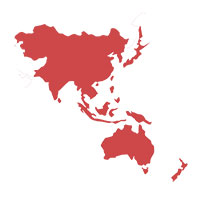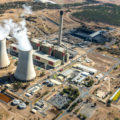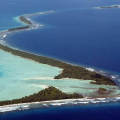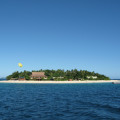Fiji Sneaks in 11th Hour Presidency Bid
Kya Lal | November 16, 2016.
At the 11th hour Fiji has been awarded the presidency of COP23. As COP22 kicked off in Marrakech the question of who would host the 2017 meeting hung over Bab Ighli. While it may not appear that way, sources suggest that that the bid by Fiji was already on the table prior to arriving in Marrakech.
COP23 will not be a a tropical island get away, instead it will be hosted in Bonn, Germany. Under UN guidelines on procedure adopted in 1996, all UNFCCC COP meetings shall take place in the “seat of the secretariat” unless it has been decided otherwise, and appropriate arrangements have been made to accommodate this.
For Fiji, both time constraints and the physical logistics of attempting to host a meeting of 20,000 people, makes the choice to return the COP home to Bonn, somewhat logical. Fiji’s presidency will now also feature joint support from Germany and the European Union to ensure that the disconnect between location does not affect the negotiation process.
A small Pacific nation, Fiji has a population of less than 900,000 people. Holding the presidency will be a watershed moment, as it is the first Pacific, SIDs or AOSIS nation to claim the title. In an interview with ABC News; Cameron Driver, Deputy Director-General of the Pacific Community has said “that having Fiji at the helm of COP23 will be highly significant for the region “. Their bid for presidency began in earnest on the first day of COP22 with unanimous support from the AOSIS, SIDS and EU blocs. Their bid, was not without challengers as Indonesia had also expressed their interesting in hosting again.
With COP23 having already been pre-determined to be hosted in the Asia Pacific region, any successful presidency needed the support of this regional bloc, in order to be put forward to the UNFCCC bureau for nomination. In the end, Indonesia withdrew their competing bid, and threw their full support behind Fiji.
Fiji’s strong climate leadership throughout 2016 meant the timing was prime for them to make a run at the top job. In April, they became the first country to ratify the Paris Agreement. This ratification made good on their national climate change action plan, where they pledged to generate 100 per cent of electricity from renewables by 2030. As well as reduce its total emissions by 30 per cent in the same time period.
Additionally, being the current president of the United Nations General Assembly means that Fiji is well placed to demonstrate their political capacity for the role. This was aided by a strong track record and willingness to accept climate displacees from neighbouring islands such as Tuvalu and Kiribati. Outside of the climate world, Fiji’s place on the world stage was significantly buoyed having won their first gold medal at this year’s summer Olympics in Rio de Janeiro.
While 2016 was a year of notable highs for Fiji, it was also a year of devastating climate impacts. In February, the country witnessed its worst ever natural disaster, cyclone Winston. Winston became the largest ever cyclone on record to make landfall in the southern hemisphere, second only to typhoon Haiyan which devastated the Philippines in 2013.
While the death toll of Winston remained low with a little over 40 lives lost, the infrastructure damage and human displacement was and remains significant. Over 50,000 people were evacuated from their homes and the damage bill was cited as being close to US$500 million, with many people and communities still struggling to recover from its devastating impacts.
Fiji has a long history of decisive politics at an international level, a legacy set to continue with COP23. In true island spirit, we are liable to see the galvanising of both Fijian and Pacific climate and diplomatic leadership. 2017 is set to be the year of Fiji and the Pacific in the UNFCCC.













comment